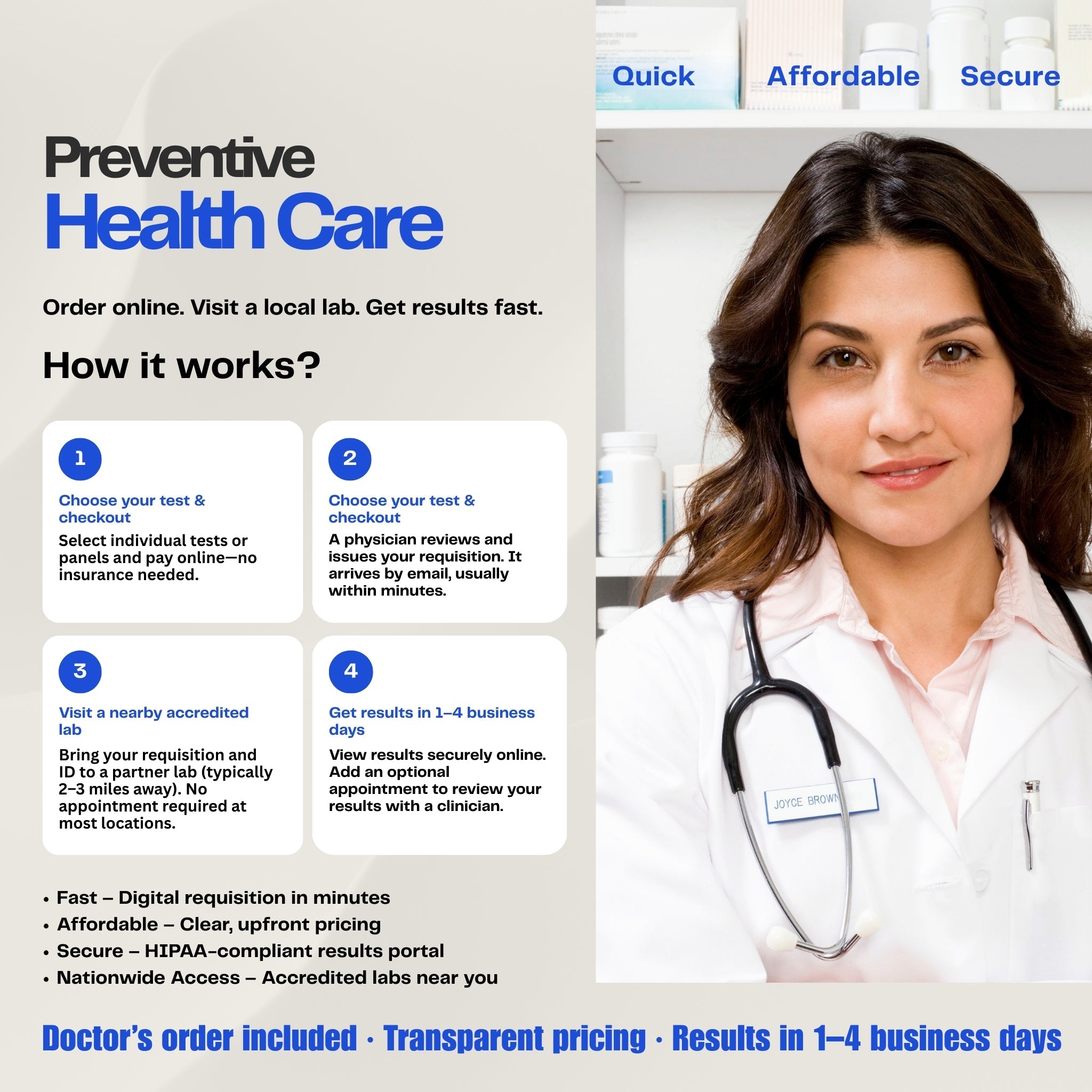

Comprehensive Inflammation Panel
Become a member to unlock discounted pricing and exclusive perks.
The Comprehensive Inflammation Panel is a robust diagnostic tool designed to provide a holistic view of your body's inflammatory status, metabolic health, and essential organ functions. By analyzing a wide array of biomarkers, this panel helps identify underlying inflammatory processes, assess cardiovascular risk, and evaluate key systems like the liver, kidneys, and blood. It's an invaluable resource for proactive health management and understanding the root causes of various symptoms for your optimal well-being.
Quick facts
Blood (Serum, Plasma, or Whole Blood)
2–4 business days
No Fasting Required
Licensed physician review and requisition included with every test.

How It Works?

once Test Order is received, Our physicians will review your request and email you the easy-to-follow requisition form.

Find the closest partner location—most are within 2–3 miles—and drop by for a quick, no‑appointment blood draw.

Once your sample is processed, we’ll send your report straight to your inbox within 1–3 business days. Just click the link to view your results anytime.

Have Questions about results? Book a phone or video visit with one of our doctors. They’ll walk you through your report, explain any findings, and recommend next steps





